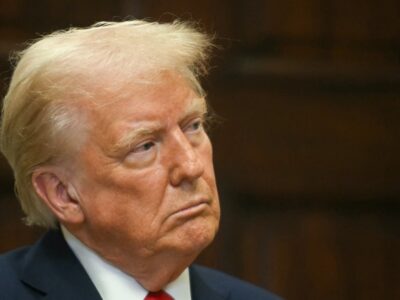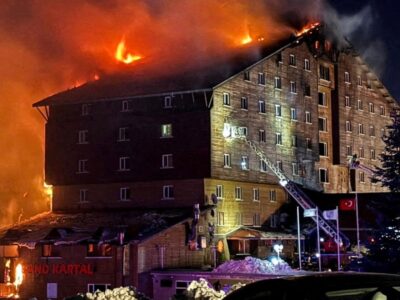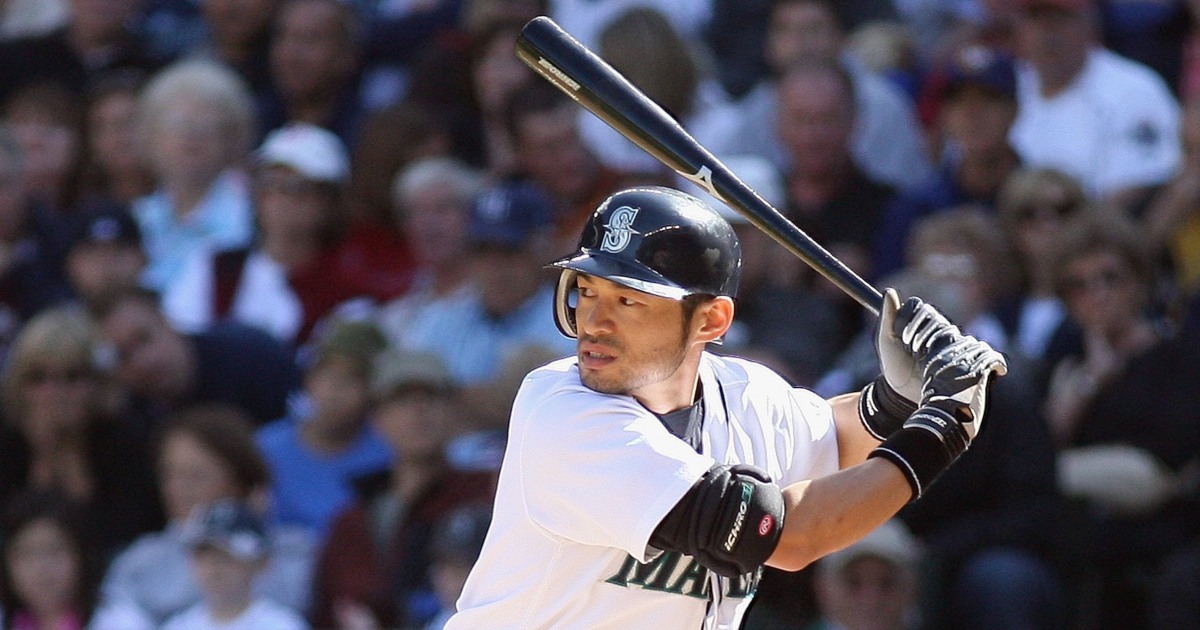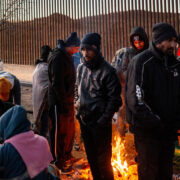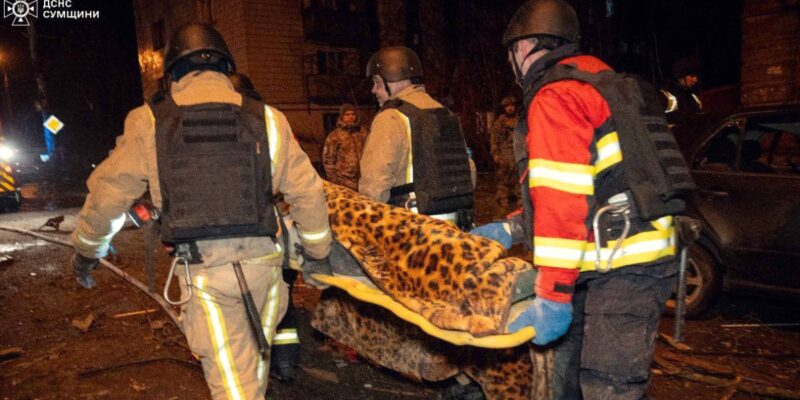
Russian President Vladimir Putin on Friday claimed that a newly developed ballistic missile fired into Ukraine earlier in the week was incapable of being intercepted, the culmination of a week of escalating threats to the West.
“There is no countermeasure to such a missile, no means of intercepting it,” Putin said in televised comments, according to Reuters. “And I will emphasize once again that we will continue testing this newest system. It is necessary to establish serial production.”
Earlier, Kremlin spokesman Dmitry Peskov said its attack using the hypersonic “Oreshnik” missile was a warning to Ukraine’s “reckless” Western allies.
On Thursday, Putin said he had ordered a strike with the new intermediate-range ballistic missile in response to Ukraine’s use of long-range Western weapons to hit targets inside Russia for the first time.
Despite Moscow’s deployment of the new weapon, which carried multiple warheads, the United States and its European partners have vowed not to be deterred in their support for Kyiv.
Meanwhile, new details were emerging about the deepening alliance between Moscow and Pyongyang. North Korean leader Kim Jong Un issued his own nuclear threat to his U.S.-backed southern neighbor and accused Washington of fueling tensions.
The latest round of saber rattling from Putin and Kim has come during a week in which the war in Ukraine passed 1,000 days and with Washington preparing for a change in leadership.
Still, Western officials and analysts have sought to play down what they said was an effort to intimidate Kyiv and its backers.
Ukrainian President Volodymyr Zelenskyy decried the use of the new missile on the eastern city of Dnipro as a “severe escalation.” He also announced that Ukraine was holding meetings with its “partners” about new air defense systems to counter any new threats.
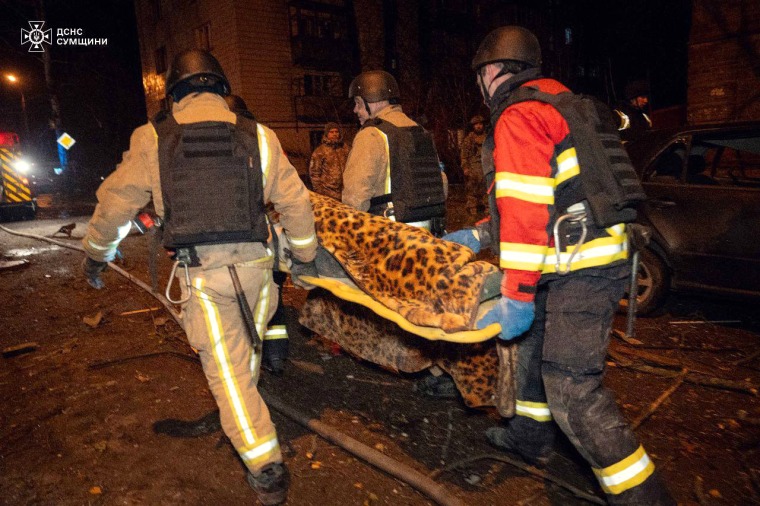
A drone attack on Ukraine’s eastern Sumy region killed at least 2 people Friday, local officials said.State Emergency Service of Ukraine / Anadolu via Getty Images
On Thursday, he said the Russian missile strike was a second major step toward escalation after the Kremlin’s deployment of more than 10,000 North Korean troops.
On Friday, Kim warned that due to U.S. hostility, his region had never faced a greater risk of “the most destructive thermonuclear war,” according to the KCNA state news agency.
The Kim-Putin alliance was likely one factor behind the decision of Washington and its allies to relax restrictions on Kyiv. And NATO, the Western military alliance bracing for a second Donald Trump presidency, said it would not stop that support in the face of Putin’s threats.
“Deploying this capability will neither change the course of the conflict nor deter NATO allies from supporting Ukraine,” alliance spokesperson Farah Dakhlallah said.
Biden administration officials briefed Ukraine and other allies in recent days to help them prepare for Russia possibly using the new weapon, according to a U.S. official.
“Russia may be seeking to use this capability to try to intimidate Ukraine and its supporters or generate attention in the information space, but it will not be a game changer in this conflict,” the U.S. official said.
Ukraine’s use of long-range Western weapons to strike Russian soil followed months of pleading during which it came under intensifying Russian attacks in the air and on the battlefield.
In a sign of the danger felt on the ground, the Ukrainian Parliament canceled a session Friday and reduced staff presence because of the increased threat of a missile attack on the area housing government buildings, the country’s public broadcaster said.
Meanwhile, Russian Defense Minister Andrei Beluosov said that his forces had sped up their advance and “disrupted” the Ukrainian military’s plans for the upcoming year.
On a visit to a command post of the country’s “north” group of forces — the group targeted by a Ukrainian strike in the Kursk border region that used British Storm Shadow long-range missiles — Beluosov said that Ukraine’s “best units were ground down here” and that “the advancement [of the Russian Armed Forces] has accelerated.”
The Russian Defense Ministry, which posted the comments Friday, did not say when or where the visit took place.
Andrey Baklitskiy, a senior researcher at the Geneva-based United Nations Institute for Disarmament Research, was unconvinced by escalating Russian threats.
Russia clearly felt the need to respond to Ukraine’s crossing its red lines, he said. But, he told NBC News in a phone interview Friday after the new missile was launched that it is “unclear what this is adding to Russian capabilities.”
While the new missile had multiple warheads, it was not clear how precise they were, Baklitskiy said.
The U.S. said the Oreshnik — or “Hazel tree” — was a new, experimental type of missile based on the design of the existing RS-26 Rubezh intercontinental ballistic missile.
Kyiv initially claimed that Russia had fired an ICBM.
The weapon would also likely be “quite expensive,” Baklitskiy said, so not something the Kremlin could regularly deploy.
While Baklitsky conceded that the attack still had its uses as a thinly veiled threat that it could one day unleash a nuclear payload, he caveated that by pointing to signals that the Kremlin was still eager to avoid significant escalation — Russia notified U.S. officials about the attack using nuclear risk reduction communication channels.
“You are responding with something you haven’t used before,” he added. “But then it’s not escalatory in the sense of things getting out of hand.”

